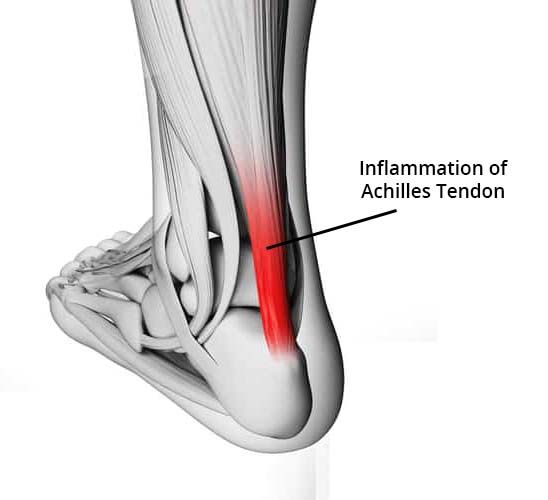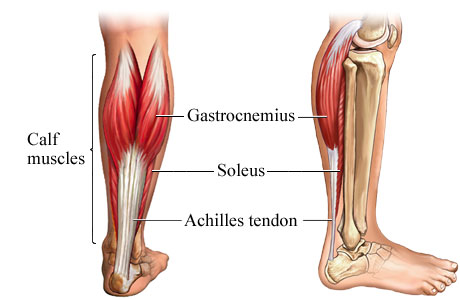Running is a popular exercise, but it can take a toll on your body. One of the most common problems runners encounter is Achilles tendon pain, which can be frustrating and uncomfortable. It is essential to understand this type of injury and learn how to prevent it from interfering with your performance. To experience, exceptional performance in running, choose the best footwear for your runs like Tarkine Trail Devil shoes.

The Achilles tendon is the body’s largest tendon, which connects the calf muscles to the heel bone. When the tendon is overworked, it can become inflamed and irritated, resulting in Achilles tendinitis. If left untreated, this inflammation can lead to scar tissue formation that is less flexible than the tendon, increasing the risk of a partial or complete tear.
 If you experience pain in your Achilles tendon, it is essential to stop running and seek medical help. According to Jordan Metzl, a sports medicine physician at the Hospital for Special Surgery in New York City, continuing to run with an injury can aggravate it. Instead, start cross-training and consult a medical professional if the pain persists.
If you experience pain in your Achilles tendon, it is essential to stop running and seek medical help. According to Jordan Metzl, a sports medicine physician at the Hospital for Special Surgery in New York City, continuing to run with an injury can aggravate it. Instead, start cross-training and consult a medical professional if the pain persists.
View this post on Instagram
Symptoms of Achilles tendinitis include pain along the back of the tendon, limited ankle flexibility, redness or burning sensation in the Achilles area, a nodule or a lumpy buildup of scar tissue felt on the tendon, or a cracking sound when your ankle moves. If you notice a lump, seek immediate medical attention.
Several factors can cause Achilles tendinitis, including tight or fatigued calf muscles, increasing mileage too quickly, overtraining, hill running, speedwork, and wearing stiff running shoes. Runners who overpronate are also more susceptible to this injury.
Metzl suggests icing the affected area for 15 to 20 minutes several times a day to relieve Achilles tendon pain until the inflammation subsides. Anti-inflammatory medicines or creams may also help. Self-massage, stretching, or rolling out the calf muscles can be beneficial. If home treatment doesn’t work, seek medical attention.
To prevent Achilles tendinitis, it is crucial to strengthen the muscles in your calves and feet. Stretching your calves regularly is also essential. A simple stretch involves standing on the balls of your feet on stairs, a curb, or any elevated surface and letting your heels hang off the edge. Lower your heels down slowly until you feel a stretch in your calves. You can also try eccentric calf raises to strengthen your calf muscles.
 You can continue running without pain or injury by following these steps to prevent and treat Achilles tendinitis.
You can continue running without pain or injury by following these steps to prevent and treat Achilles tendinitis.




